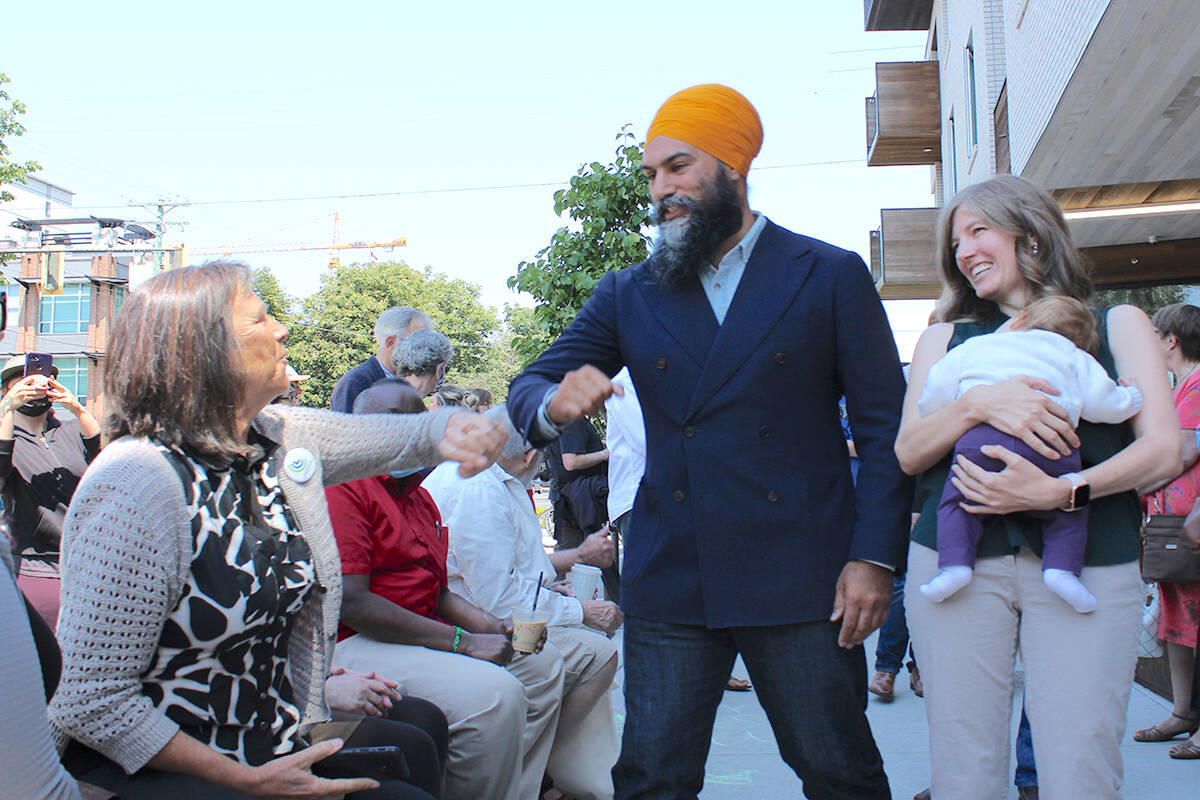Victoria MP Laurel Collins says her party still supports pricing the pollution that results from consumers using fossil fuels amid uncertainty about where the federal NDP stands.
In an interview with Black Press Media, Collins said the focus should be on reducing politicization of the consumer fuel charge while taking greater action against the biggest polluters.
That position comes after she said the federal government’s consumer carbon pricing scheme is not the “be-all, end-all” of climate action this month. Her comments preceded NDP Leader Jagmeet Singh saying the party’s longtime support for the policy remained even as he refused to clarify whether he supports the consumer levy on fuels like gasoline and natural gas.
“We have not changed our position on the consumer carbon price,” Collins said in an April 18 interview, adding she wants to see policies expected to land larger greenhouse gas (GHG) cuts get even more robust.
“I want the conversation to be more focused on the industrial carbon price, on how we make the biggest polluters pay what they owe.”
An independent analysis from the Canadian Climate Institute in March found industrial carbon pricing will be the biggest driver in emissions reductions between now and 2030. Those large-emitter trading systems could yield between 20 to 48 per cent of Canada’s emissions cuts, while the consumer fuel charge could account for between 8 and 14 per cent.
“This analysis clearly demonstrates that climate policy is delivering results – with industrial carbon pricing leading the pack,” the institute’s president Rick Smith said.
Collins, the NDP’s environment and climate change critic, said the governing Liberals have watered down greenhouse gas-slashing policies like the coming regulations for a net-zero electrical grid and an oil and gas emission cap. The latter targets the country’s largest source of emission and represented the second largest chunk of potential GHG reductions in the Climate Institute’s analysis.
The Victoria MP said families and working people are paying the price for the climate crisis, not rich CEOs or big oil and gas corporations that are making record profits. She criticized the feds for not heeding the NDP’s call for the budget to include an excess profits tax on oil and gas companies, similar to the one applied on banks during the pandemic.
“The Liberals caved yet again to the lobbyists in the oil and gas sector and didn’t implement a key policy that could’ve generated revenue to invest in climate solutions and could’ve made some of the biggest polluters pay their fair share,” Collins said.
A spokesperson said Finance Minister Chrystia Freeland has on several occasions refuted the rumour of lobbyist influence.
“It’s also really important for us to ensure that Canada continues to be internationally competitive, to ensure that Canada continues to be an attractive investment destination for foreign investors and for Canadian investors,” Freeland responded to the NDP claim in the House of Commons on budget day. “It was with that in mind that we were very thoughtful about the revenue raising methods that we chose.”
Both the Liberals and the Conservative Party have used the consumer carbon price as a political wedge, Collins said, adding the country’s climate conversation shouldn’t be dominated by one narrow policy piece.
As the Conservatives have been looking to make inroads in NDP ridings, including ones on the Island, Collins accused the party’s leader Pierre Poilievre of having no environmental plan and caring for oil and gas executives more than protecting communities from the impacts of climate change.
Poilievre’s office didn’t response to a request for comment on those claims, though he has said he’d address emissions with technology.
“Fighting the climate crisis is not optional. Children are being kept inside because the air is choked with smoke from forest fires, heat waves in British Columbia killed hundreds of people,” Collins said.
READ: NDP supports ‘price on pollution’, Singh avoids direct response to carbon tax

